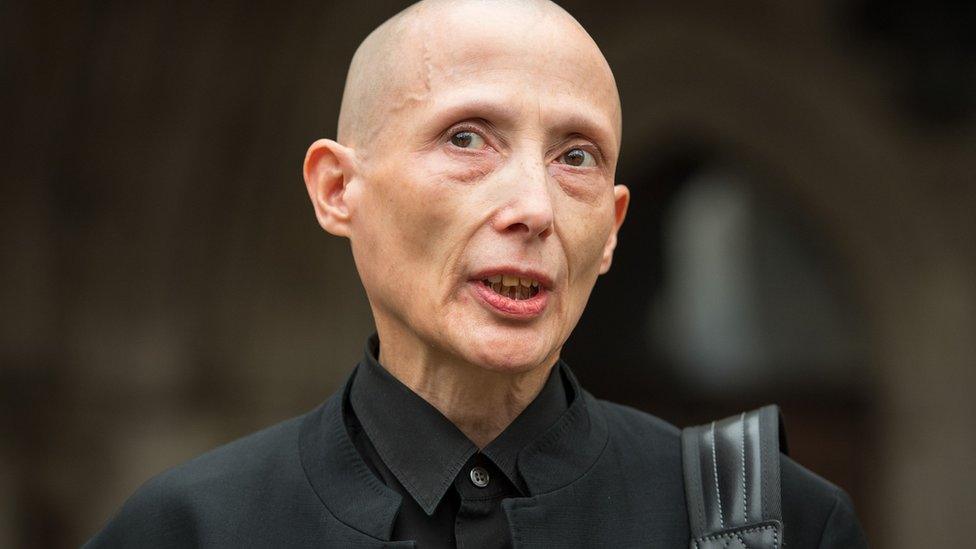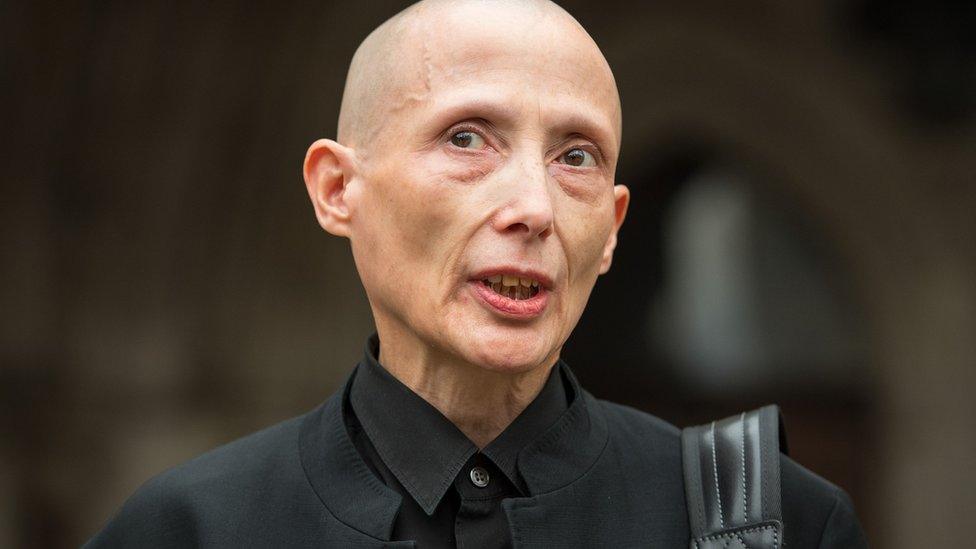Christie Elan-Cane loses legal challenge over gender-neutral passports
- Published

A campaigner has lost a legal challenge against the government over gender-neutral passports.
Christie Elan-Cane argued a policy preventing someone from obtaining a passport with an unspecified gender was unlawful on human rights grounds.
But the Court of Appeal ruled the policy did not amount to an unlawful breach, external of the activist's human rights.
In a ruling on Tuesday, three senior judges dismissed the appeal, which was contested by the Home Office.
'Social invisibility'
Christie Elan-Cane - who has been campaigning for legal and social recognition of non-gendered identity for nearly 30 years - described the decision as "devastating".
"It is bad news for everyone who cannot obtain a passport without the requirement imposed by the UK government that they should collude in their own social invisibility," the campaigner said in a statement.
The appeal centred on the lawfulness of the government's current policy on gender-neutral passports.
At the moment UK passport holders have to indicate whether they are male or female. Several other countries, including Canada, Australia and Germany, now have a third option.
Christie Elan-Cane wanted passports to have an "X" category, for those who do not identify as fully male nor female.
The activist argued that the UK policy breached the right to respect for private life, and the right not to be discriminated against on the basis of gender or sex, under the European Convention on Human Rights.
"My identity is neither male nor female, and I describe myself as non-gendered," the activist told the BBC's PM programme.
When asked about how it felt to be forced to tick one box or another, the campaigner said: "It's really degrading, especially since I've been working so hard and for so long to try and persuade the UK government to change its discriminatory policy."
'Not any consensus'
The Appeal Court said in the ruling: "There can be little more central to a citizen's private life than gender."
But it went on say that that use of the "X" marker was part of a bigger picture that required a coherent approach across all the areas where the issue of non-binary gender arose.
"There is not yet any consensus across Council of Europe states in relation to either the broad issue of the recognition of non-binary people, or the narrow issue of the use of 'X'", it said.
It said there was no positive obligation on the state to provide an "X" marker in order to ensure the right to respect for private life.
So the government's current policy did not amount to an unlawful breach of Christie Elan-Cane's rights under human rights laws.
But the ruling also noted "there is momentum in Europe in relation to how the status of non-binary people is to be recognised" and that there may come a time when the "fair balance has shifted".
The case was taken to the Court of Appeal after a judicial review action was dismissed by the High Court in June 2018.
Christie Elan-Cane was refused permission to appeal to the Supreme Court by the Court of Appeal, but can still appeal directly to the Supreme Court to hear the case.
The activist told the BBC: "My legal team, I understand, will be seeking permission from the Supreme Court to go onto that next stage."
Related topics
- Published3 December 2019

- Published22 June 2018

- Published11 October 2017
